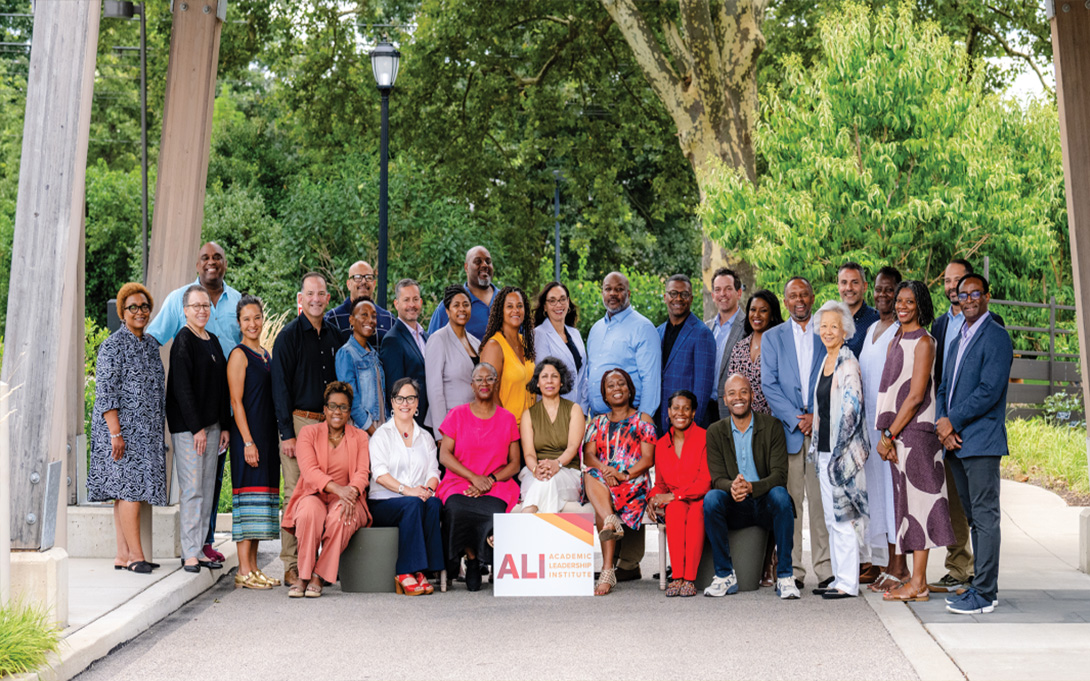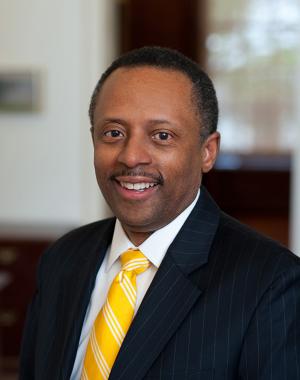
The Academic Leadership Institute (ALI) Summer Residential Program offered by the University of Michigan (U-M) and Washington University in St. Louis (WashU) equips diverse individuals with the knowledge and management skills required to advance into higher education leadership roles through a curriculum focused on DEI (diversity, equity, and inclusion).
Each year, a group of rising academic leaders is selected to participate in ALI’s five-day, in-person program, which includes presentations, panels, and discussions on such topics as institutional change and transformation, personal identity versus institutional identity, organizational culture, best practices for self-care, business and finance, and crisis management.
Over the course of the curriculum, participants are encouraged to talk openly about leadership responsibilities and the challenges faced by women, people of color, and others with underrepresented identities. They form lasting relationships with each other and with faculty, whom they can rely on as a resource later in their career.
Founders of the program are Earl Lewis, PhD, Thomas C. Holt Distinguished University Professor, Ford School professor, and director and founder of the U-M Center for Social Solutions, and Dwight McBride, PhD, Gerald Early Distinguished Professor and senior advisor to the chancellor at WashU.
“[ALI] started in two ways,” says Lewis. “Independently, Dwight and I had been thinking about the need to create an opportunity to bring together men and women, particularly folks of color, to be thinking about senior leadership roles in American higher education at the provost and presidential levels. [It also started] because of folks who were coming to us one-on-one. We realized that kind of one-on-one engagement, while useful as a mentorship model, is not scalable, and if we were going to scale, we needed to arrive at a new design.”
Professional development opportunities like ALI are necessary to diversify the top of the higher education hierarchy, which remains predominantly older, White, and male, according to the American Council on Education study “The American College President: 2023 Edition.” The report finds that men outnumber women two to one in presidential positions, presidents of color account for a little over 25 percent, and about one in 10 presidents are women of color.
“Given the incredible demographic shift that we are living through in the United States, it’s really important to have leaders who understand that excellence and diversity are not separate things,” says McBride.
Beyond the emphasis on DEI, a variety of features make ALI especially effective, one of which is the focus on self-exploration — allowing individuals to identify their own leadership style and understand their role in an institutional context. Also, leaders are teaching and mentoring other leaders, so the faculty of ALI consists of current and former college presidents and provosts as well as individuals who have worked in allied higher education fields, including law, search firms, and crisis communication.
Since its launch in 2021, about 75 people from institutions of all sizes have completed the program. Success is analyzed with a longitudinal approach, as participants are surveyed before they attend, immediately after they attend, and years after, to gauge how it can improve over time. Overall, feedback has been positive, with those surveyed pointing to benefits like reinforcement of mutual goals and objectives, the ability to have intimate conversations, and the development of professional networks, says Alford Young Jr., PhD, Center for Social Solutions associate director and Edgar G. Epps Collegiate Professor of Sociology at U-M.
Robin R. Means Coleman, PhD, vice president and associate provost for diversity and inclusion at Northwestern University and INSIGHT Into Diversity editorial board member, participated in ALI in 2021.
Coleman has engaged in about a dozen professional development leadership programs. ALI is distinctive, she says, because it provides an unvarnished look at the role as seen through the perspective of current leaders, which helps participants make a more informed decision when given the opportunity for advancement.
Fellow participants from Coleman’s cohort now hold president and provost positions at some of the top universities in the nation.
“I believe that ALI helped to set them up for success, not just to get the role, but to lead in the role, because of a sustained engagement with peer mentors,” Coleman says. “If there’s a single word to describe ALI, it’s selflessness — from those leaders who spent the time with us to really help us understand what the work is.”
Despite recent legislation restricting institutional DEI efforts in states like Florida and Texas, individuals from these areas and others enrolled in the program this year, and ALI leaders remain committed to preparing a diverse group of future leaders of higher education instilled with DEI values.
“We’re gathered by core principles, that in a broad democracy like the United States, one needs to constantly define, value, and then leverage diversity for the betterment of all,” Lewis says. “We keep that front and center in the work that we do.”
To learn more about the Academic Leadership Institute, visit sites.lsa.umich.edu/leadership-institute.
This article was written by Nikki Brahm.

